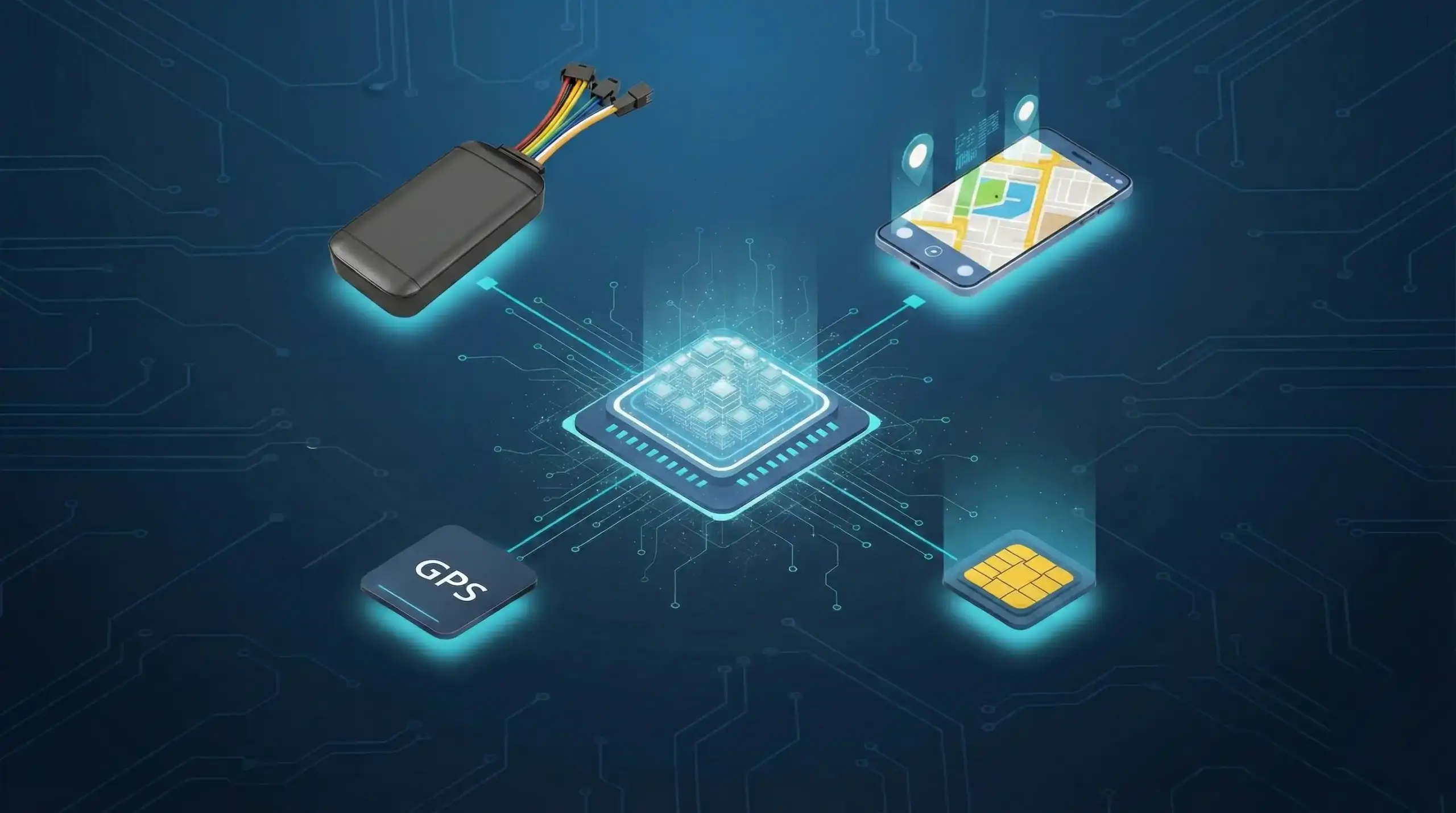Understanding GPS Monitoring Technology
GPS monitoring technology has transformed fleet management by providing real-time place information and efficient monitoring abilities. This system depends on a network of satellites that relay indicates to GPS monitoring devices installed in fleet business vehicles, vans, and delivery rides. Each satellite continuously transfers indicates that the GPS receivers process to determine their precise place, often within a couple of meters of precision. This real-time information plays a crucial role in managing fleet procedures, as companies can monitor vehicle place, speed, and instructions. As a leading vehicle GPS tracker manufacturer, we ensure precision and reliability in our devices.
The elements of a GPS monitoring system for fleet management generally consist of equipment devices, connection components, and software systems like the Protrack GPS monitoring system. The equipment consists of GPS receivers, antennas, and interaction components that gather and transmit information. On the software side, fleet supervisors utilize systems to access and analyze this information, enabling them to set up custom notifies for fleet procedures. These notifies can inform supervisors of various problems, such as vehicle speed exceeding a limit or unapproved use, ensuring prompt treatments to follow functional requirements. Many of our devices are designed as trackers for company vehicles.
Throughout the years, GPS monitoring technology has evolved significantly, advanced by improvements in satellite systems and telecommunications. At first rudimentary, the technology has grown to include features that not just track locations but also provide analytics devices to improve fleet effectiveness and overall efficiency. By adopting solutions like the Protrack GPS tracker, companies can manage everything in one spot, fostering better decision-making processes. Additionally, implementing GPS systems is imperative for reducing functional costs, improving delivery precision, and eventually increasing income through optimized routes and improved client satisfaction. Our expertise extends to GPS for car OEM solutions, ensuring seamless integration into various vehicle models.
As the logistics and transport markets proceed to accept this advanced technology, the role of GPS monitoring in fleet management remains critical for any business looking to flourish in today’s affordable environment.
The Importance of Real-Time Notifies
In today’s hectic logistics landscape, the integration of advanced technology such as the Protrack GPS tracker into fleet management is imperative for improving functional effectiveness. Real-time notifies, allowed by innovative GPS monitoring systems, provide immediate notices to fleet supervisors, enabling them to quickly address any problems that may occur. For circumstances, the capability to receive instant notifies regarding vehicle break downs can significantly minimize downtime. Fleet supervisors are equipped to react quickly, dispatching assistance or rerouting sources as necessary, which in transform ensures that shipments are made on schedule and client satisfaction remains high. Our products, from a trusted vehicle GPS tracker manufacturer, prioritize these real-time alerts.
Additionally, real-time notifies can flag unapproved movements or discrepancies from assigned routes, which is essential for preserving security and effectiveness in fleet business procedures. For instance, a study including a delivery company shown that with the Protrack GPS monitoring system, supervisors could set up custom notifies for fleet movements that differed planned routes. The capability to receive such notices promotes a positive reaction strategy, mitigating dangers associated with burglary or ineffective directing. This vigilance not just protects possessions but also enhances fuel consumption and improves overall efficiency. This is particularly beneficial for trackers for company vehicles.
Considered that information flows instantly through modern GPS systems, fleet supervisors can make informed, data-driven choices that improve functional outcomes. By utilizing real-time information, companies can analyze patterns and determine locations for improvement in their logistics processes. Furthermore, research shows that companies utilizing the Protrack GPS tracker experience an increase in income through better path planning and decreased functional costs. This aspect highlights the extensive impact of having the capability to manage everything in one spot through effective GPS fleet monitoring. The benefits of real-time notifies prolong past immediate dilemma management to foster a society of responsiveness and effectiveness within fleet procedures. We also offer specialized GPS for car OEM solutions that include these advanced alert features.
Implementing Real-Time GPS Monitoring Solutions
Implementing real-time GPS monitoring solutions is critical for fleet companies aiming to improve operational effectiveness and improve solution delivery. The first action in this process is choosing the right GPS monitoring system, a choice that must be based in an extensive understanding of the business’s operational needs. An efficient Protrack GPS tracker must not just have real-time monitoring abilities but also features that support integration with current fleet management devices. Equipment specs, consisting of resilience and compatibility with various vehicle kinds (vehicles, vans, delivery rides, and so on.), are critical to ensuring dependable efficiency. As a reliable vehicle GPS tracker manufacturer, we provide a range of robust hardware.
Once the appropriate monitoring equipment is selected, attention turns to the software element, particularly the Protrack GPS monitoring system. Key features to assess include mobile access, user-friendly user interfaces, and effective information evaluation devices. A software system that allows fleet supervisors to set up custom notifies for fleet-related occasions, such as upkeep pointers or unapproved vehicle use, can significantly improve procedures. These notifies can facilitate positive management, ensuring that problems are dealt with quickly to minimize interruptions. Our trackers for company vehicles are designed with these software capabilities in mind.
Best practices for installation include thoroughly evaluating the technological paperwork provided by the GPS manufacturer and coordinating with IT personnel to ensure smooth integration with current systems. Throughout installation, ensuring that fleet business vehicles and vans are equipped properly is important to maximize the benefits of GPS technology. Consequently, educating staff on both the functional aspects and best practices of using the GPS monitoring system is essential for fostering a culture of technology-driven management within the company. For new vehicle models, we provide comprehensive GPS for car OEM integration support.
Effective educating encourages workers to utilize the system effectively, leading to a more cohesive understanding of how GPS fleet monitoring can boost income by enhancing routes, decreasing fuel costs, and improving customer support. By managing everything in one spot fleetwise, companies can achieve newly found effectiveness that translate into improved success and client satisfaction.
Future Trends in GPS Monitoring for Fleet Management
The development of GPS monitoring technology, particularly through systems like the Protrack GPS tracker, proceeds to improve how fleet companies operate. The integration of artificial intelligence (AI) and machine learning (ML) is anticipated to transform real-time monitoring abilities. These technologies can provide valuable understandings, enabling fleet supervisors to optimize routes and improve operational effectiveness. For instance, predicting analytics can forecast upkeep needs, enabling companies to avoid expensive downtimes and improve the durability of their fleet business vehicles, vans, and delivery rides. As a forward-thinking vehicle GPS tracker manufacturer, we are at the forefront of these innovations.
Moreover, the Internet of Things (IoT) is becoming progressively pervasive in fleet management. By incorporating IoT devices with the Protrack GPS monitoring system, companies can harness information from various sensors installed on vehicles to monitor efficiency in actual time. This information can include details such as fuel consumption, driver behaviors, and loading conditions. Such detailed monitoring allows fleet supervisors to set up custom notifies for fleet efficiency metrics, thereby ensuring that problems are dealt with quickly and efficiently. This level of detail is critical for effective trackers for company vehicles.
However, these developments come with their own set of challenges. Privacy concerns continue to be a significant issue as monitoring technologies become more advanced. Fleet supervisors must navigate the complexities of information handling, ensuring conformity with regulations while still utilizing the benefits of GPS fleet monitoring to enhance income. Additionally, the landscape of fleet management may develop under the influence of regulatory examination, prompting companies to adopt more strict information protection measures. Our GPS for car OEM solutions are designed with data security and privacy compliance in mind.
As technology proceeds to advance, fleet management methods will most likely adapt to integrate these arising trends. With a concentrate on innovation, companies that accept the abilities provided by the Protrack GPS tracker and various other advanced monitoring solutions will position themselves for success in an increasingly competitive market. To conclude, the future of GPS monitoring for fleet management holds great promise, with a mix of technical developments and careful management of associated challenges.









